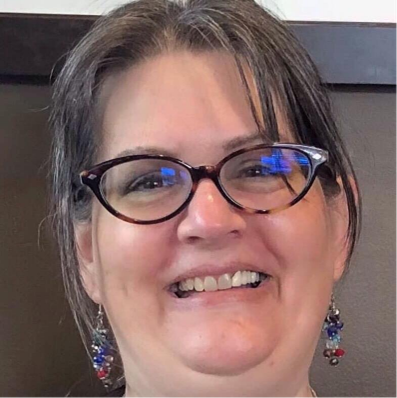Posted • Last updated
Closed
Open to Provincial Region, Patient partners across the province
Last updated
Health research often does not reflect the burden of disease placed on patients and families. Factors like funding sources, vested researcher interests, publication bias, and consumer pressure can influence the research agenda away from the needs of patients. As a result, questions that patients and clinicians consider important may not be addressed. Ultimately, such bias can negatively impact patient health outcomes. You can help to change that!
Open to: Patient partners across the province
Lead Organization or Department
Dalhousie University, Faculty of MedicineAim
The aim of this research priority setting partnership is to generate a list of unanswered questions about anesthesia and post-surgical care from the perspectives of patients, caregivers and clinicians and then to prioritize those that they agree are the most important. The aim is to then work with researchers and research funders to obtain funds for that research. As a member of the Steering Group, which is comprised of patients, caregivers and clinicians, you will oversee the project at monthly meetings and at a full-day workshop.Level of Engagement
This opportunity is at the level of collaborate on the spectrum of engagement. The promise to you is that the research partner will work together with you to formulate solutions and incorporate your advice and recommendations into the decisions to the maximum extent possible.Eligibility
- Personal experience with anesthesia as a patient or caregiver. Anesthesia is described as the loss of sensation (e.g., pain) with or without the loss of consciousness. Common examples of anesthesia are general anesthetic, which renders a patient unconscious during a surgical procedure, and a spinal nerve block, which removes all sensation without putting the patient to sleep
- Currently living in British Columbia
- The ability to attend meetings via tele- or webconference using technology such as Skype.
- The ability to communicate using email and to send and receive documents prepared using software such as MSWord or Adobe.
- Comfortable sharing experiences and perspectives in a group
- Experience working collaboratively as part of a group to achieve results is desirable.
Logistics
- Vacancies: 1
- Monthly one-hour teleconferences. You may also expect to spend about one hour per month reviewing documents in preparation for or as follow-up after the meetings.
- You will also be asked to review the results of an on-line survey that will be distributed to the public. This review occurs several weeks before the workshop that is tentatively scheduled for March 2019. The time commitment is variable, depending on how many survey responses are received and how many people are on the Steering Group. Organizers will work with you to ensure that your workload is manageable.
- A one-day in-person workshop to debate, rank and prioritize the Top 10 research priorities is being planned for March 2019. The meeting will likely take place in Toronto.
- People are asked to commit to the project until September 2019.
- Training in the James Lind Alliance (JLA) Priority Setting Partnerships (PSPs) will be provided through on-line resources and mentorship by the research partner.
Reimbursement
Pre-approved travel expenses will be reimbursed.Background
This priority setting partnership is focused on creating a list of potential research questions about anesthesia. Anesthesia is described as the loss of sensation (e.g., pain) with or without the loss of consciousness. Common examples of anesthesia are general anesthetic, which renders a patient unconscious during a surgical procedure, and a spinal block, which removes all sensation without putting the patient to sleep. Collaboration between patients, caregivers and clinicians to set the research agenda is extremely rare, but vital in drawing issues to the attention of research funders which might not otherwise be suggested or prioritised. The James Lind Alliance (JLA) is non-profit initiative which was established in the United Kingdom in 2004 with the aim of enabling groups of patients, caregivers and clinicians to work together to agree on priorities for health research. The JLA facilitates Priority Setting Partnerships (PSPs) in particular health areas. Each PSP consists of patients, caregivers and clinicians, and is led by a Steering Group. The role of the PSP is to identify questions which have not been answered by research to date, and to then prioritise these. The first stage is an online survey to patients, caregivers and clinicians. For this project, the survey is asking for unanswered questions about anesthesia and care around the time of surgery. These questions will then be assessed to check they are in scope for the PSP and checked and verified as true uncertainties. An interim prioritisation exercise then takes place to shortlist the uncertainties, before a priority setting workshop is then convened where participants debate and finally arrive at a Top 10 list of shared unanswered questions, or uncertainties, which are most important to them. The aim is then to turn these uncertainties into research questions and for members of the Steering Group to work with researchers and research funders to obtain funding for that research. All uncertainties are displayed on the JLA website. Further details about the JLA and PSPs are at http://www.jla.nihr.ac.uk/Health Care Partner Contact Information
Teresa Bissenden
Engagement Leader, Patient & Public Engagement | Provincial
604.668.8253
tbissenden@bcpsqc.ca
Research Partner Contact Information:
Jillian Banfield, Project Coordinator
Department of Anesthesia, Pain Management & Perioperative Medicine QEII Health Sciences Centre
Office: 902.473.4337
Email: jillian.banfield@nshealth.ca
Colleen McGavin
Patient Engagement Lead, BC SUPPORT Unit
cmcgavin@bcsupportunit.ca | 250-889-2691

